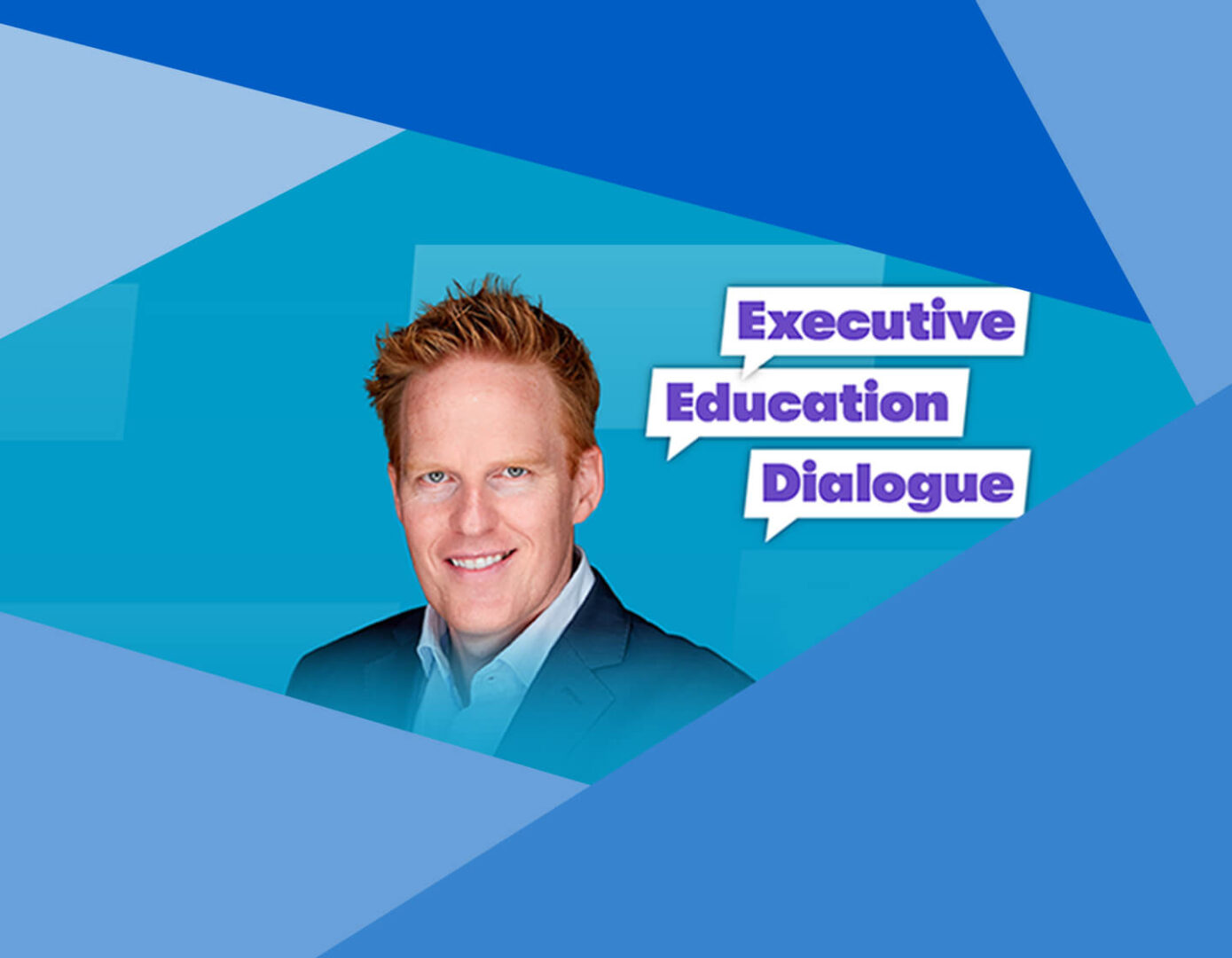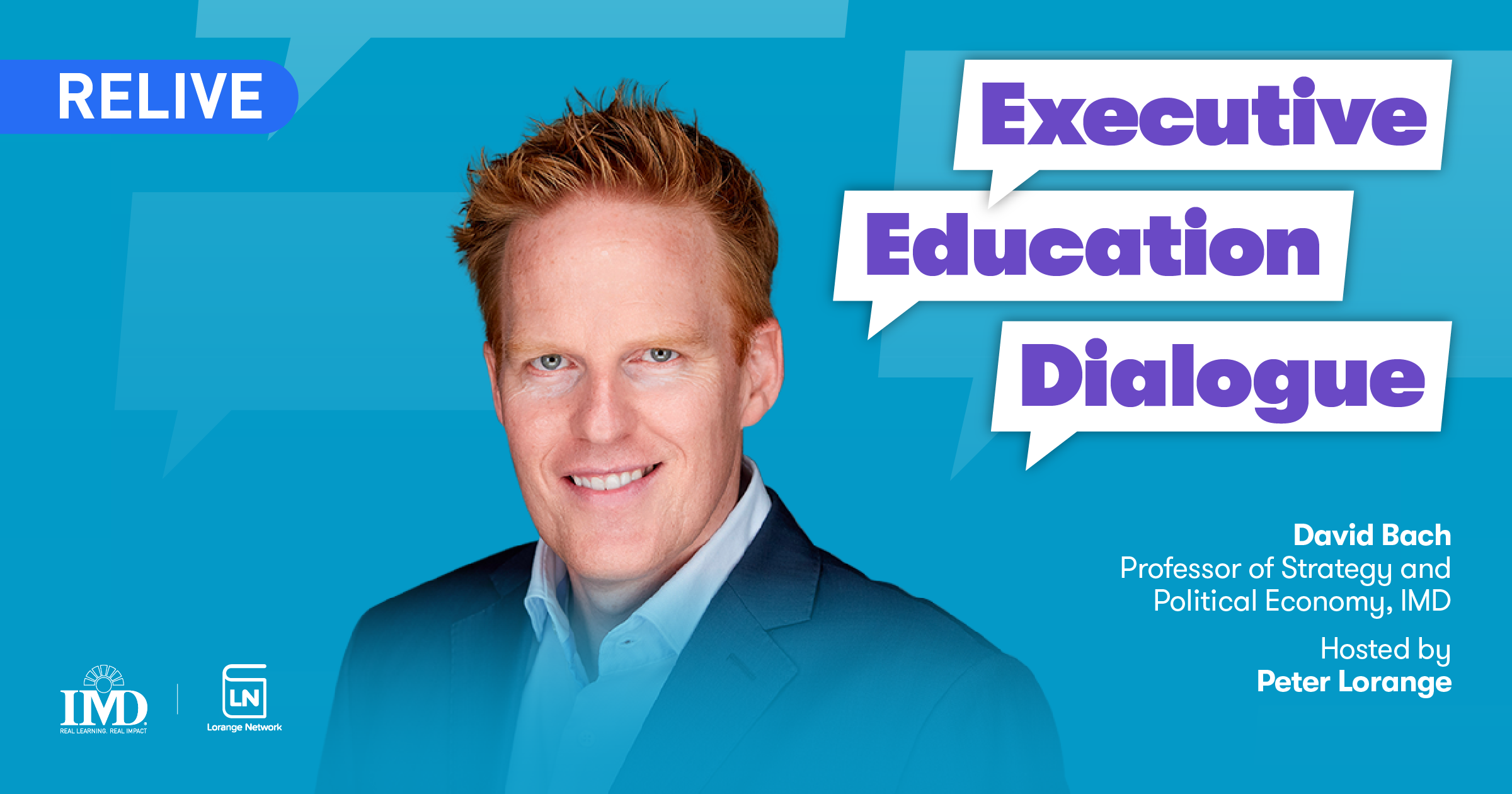
As the American industrialist and business magnate Henry Ford once said, “Anyone who stops learning is old, whether at twenty or eighty. Anyone who keeps learning stays young.”
Staying true to this adage, IMD Honorary President Peter Lorange took part in three IMD programs earlier this year – at the age of 78 and 79 – to sharpen his own leadership and business skills.
“Although I know more or less quite a lot, and things are going quite well business-wise, good can always be done better and that’s why I came to IMD to get more input for the better,” Lorange explained in a conversation with Professor David Bach, Dean of Innovation and Programs.
In the past, a professional qualification or an MBA might have set you on course for a stellar career. But the rapid advance of new technologies and growing demands on leaders to make sense of complex issues – from escalating geopolitical conflict to the supply chain crisis – mean executives today need to constantly upskill.
Lorange was particularly interested in the intersection of management and technology. He took part in Driving Strategic Innovation, a joint program with MIT Sloan designed to change the way you think about innovation and technology strategy, as well as a Leading Digital Business Transformation. Lorange and members from his family investment company also spent a week at IMD in June for the flagship Orchestrating Winning Performance which allows participants to select a personal learning program from a smorgasbord of IMD’s latest thought leadership.
How to get the most out of executive education
Over the course of the Digital Dialogue, Lorange shared his tips on how best to prepare for a program and ensure that the learnings stick. He praised the virtual learning for enabling participants to get up-to-speed with program content before setting foot in the classroom. This enables faculty to drive discussions among participants very similar “to the conductor of an orchestra.”
During the programs, Lorange appreciated the exchange with other participants in the corridors and understanding diverse perspectives. “It gave me much more of an appreciation that it was a phenomenon I was studying; It was a matter that A was B and B is C,” he explained.
Each evening, Lorange convened with his family members, who also participated in the program, to discuss their top-line takeaways.
As any lifelong learner will know, attending a program will serve to stoke your curiosity. Since completing the programs, Lorange has read more than 60 books to try to cement the learnings and understand further.
He has also signed up to attend three more IMD programs next year: another installment of Orchestrating Winning Performance also with his family business members, High-Performance Boards, and the Blockchain and the Future of Finance program which helps executives uncover new opportunities to create value and revenue from fintech, such as blockchain, cryptocurrencies and the tokenization of tangible/intangible assets.
The future of management education
While many executives may find it hard to justify taking time out of their day jobs to pursue professional development, Lorange sees executive education as an essential way for leaders to “recharge the batteries.”
“We want leaders and CEOs who embrace this idea that we must continue to learn. Good can always be done better and learning on the job can be supplemented with learning in some other setting.”
Lorange, who served as president of IMD between 1993 and 2008, believes technology, quality of faculty, the global reach of participants and the cost-effectiveness of programs will be the four main trends driving the future of executive education.
Bach and Lorange also discussed how age was often an overlooked aspect of diversity.
“You never cease to be excited about learning if you have the right mindset. I don’t think it’s fair because of age that you should no longer be at the table,” he said.


